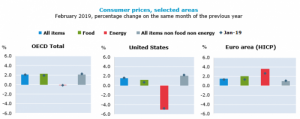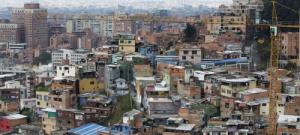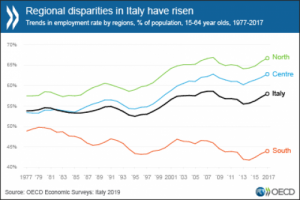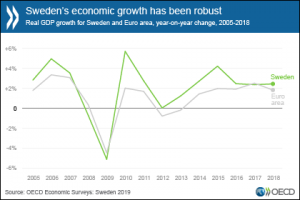Finance & Economics
With Moderating Growth in Croatia, Financial Inclusion Can Play Key Role Addressing Long-Term Challenges
Croatia experienced economic growth of 2.6% in 2018, and it is expected to remain moderate at an average of 2.5% in the 2019-2021 period, according to the World Bank’s Economic Update for Europe and Central Asia, released on April 5th.
- Read more
- 254 reads
Tackling Corruption in Government
No country is immune to corruption. The abuse of public office for private gain erodes people’s trust in government and institutions, makes public policies less effective and fair, and siphons taxpayers’ money away from schools, roads, and hospitals.
- Read more
- 288 reads
Polish Economy to Slow Slightly, Fiscal Deficit to Grow, Says World Bank
Poland’s economic growth rate is projected to slow to 4.0% in 2019, down from over 5.0% in 2018, according to the World Bank’s latest Economic Update for Europe and Central Asia, released on April 4th.
- Read more
- 247 reads
Consumer Prices, OECD - Updated: 2 April 2019

- Read more
- 298 reads
UN highlights profound implication of population trends on sustainable development

A view of the city of Bogotá, Colombia.
- Read more
- 310 reads
Vienna Initiative, 10 Years On, Makes Case for Deeper Financial Integration in Emerging Europe
The case for deeper financial integration in emerging Europe remains strong as the Vienna Initiative marks a decade since its launch as a unique public-private forum that helped the region weather the worst of the global economic crisis.
- Read more
- 272 reads
World Bank Helps Improve Livability of Four Localities in Dhaka City
The World Bank, on March 29, approved $100.5 million to improve public spaces and urban services in four large neighborhoods under the Dhaka South City Corporation benefitting about a million residents.
- Read more
- 281 reads
OECD Steel Committee concerned about excess capacity in steel sector
Low growth prospects for the global economy, slowing demand for steel and virtually unchanged steelmaking capacity are driving severe and persistent excess capacity in the steel sector, the OECD Steel Committee said at the end of its meeting this week. The Committee reiterated the need for capacity reductions in relevant economies and for the removal of subsidies and other support measures that are distorting steel markets.
- Read more
- 291 reads
Human Rights
Ringing FOWPAL’s Peace Bell for the World:Nobel Peace Prize Laureates’ Visions and Actions

Protecting the World’s Cultural Diversity for a Sustainable Future

The Peace Bell Resonates at the 27th Eurasian Economic Summit

Declaration of World Day of the Power of Hope Endorsed by People in 158 Nations

Puppet Show I International Friendship Day 2020



